Teatro Nuovo’s “Barber of Seville” was the first full-scale live performance in the city since before the pandemic.
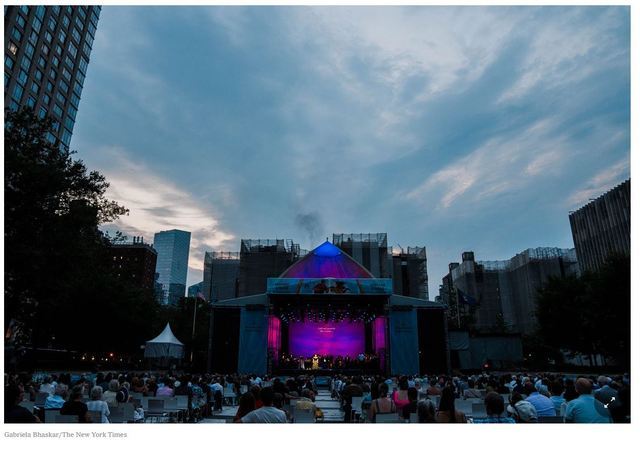
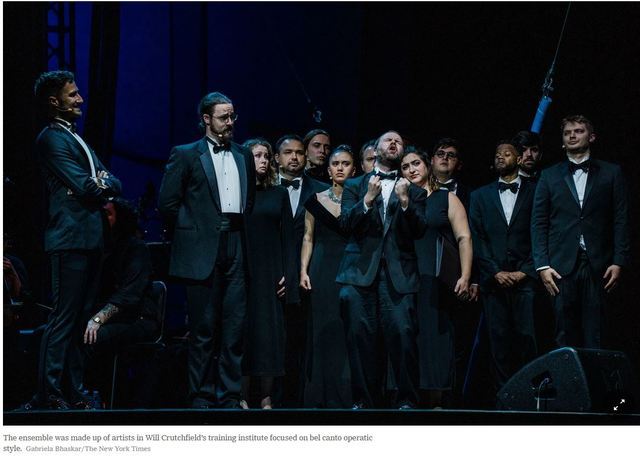

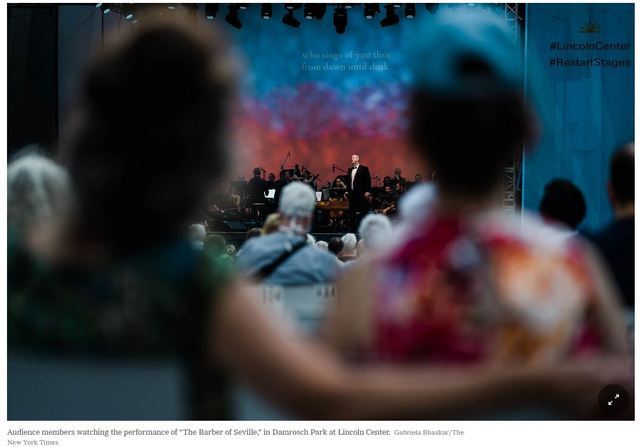
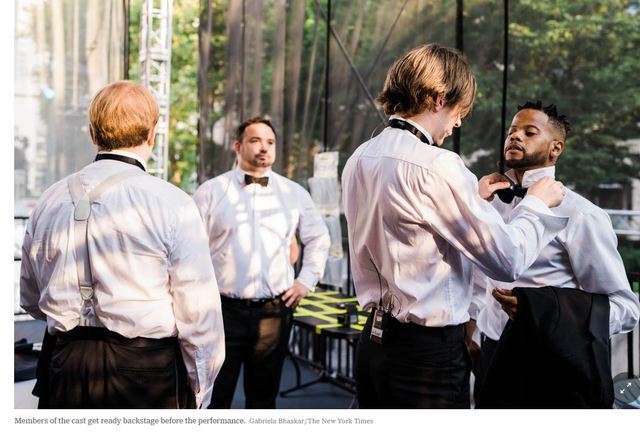
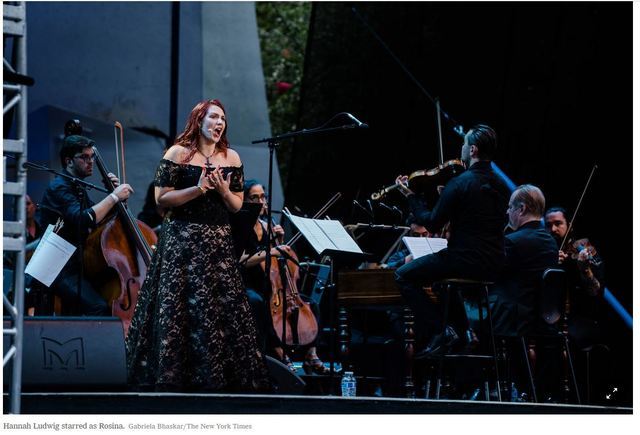
By Anthony Tommasini
July 28, 2021
Opera is back in New York City.
On Tuesday evening, two months before the Metropolitan Opera is scheduled to reopen, a full-scale live performance took place, for the first time since before the pandemic. And it was in the Met’s shadow, in Damrosch Park at Lincoln Center, where Teatro Nuovo presented a semi-staged, concert-dress version of Rossini’s “The Barber of Seville.” (There is a second performance on Wednesday evening.)
Like almost all outdoor performances, this one required amplification. Usually this is a burden. Yet on Tuesday it proved a salve for the audience of roughly 750, as the music had to compete with the sounds of grunting generators and crunching machinery on a nearby street.
An outgrowth of the Bel Canto at Caramoor series that Will Crutchfield, a conductor and scholar of early 19th-century Italian opera, ran for 20 years, Teatro Nuovo is a performing and training program focused on the bel canto repertory. Generally known for his devotion to complete performances of these works, Crutchfield had to make trims to Rossini’s score to end the performance by 10 p.m., the park’s curfew.
No matter. This was still nearly three hours of opera. And what came through was a fresh, lively performance full of ideas and rich in subtleties.
The artists who work with Crutchfield study the performance practices of a golden era of opera. His goal is not to make performers today feel beholden to the past in matters of ornamentation and rhythmic execution; after all, the style in Rossini’s day encouraged freedom and flair. Crutchfield tries to embolden his colleagues to start from scratch and think for themselves.
That this cast, backed by 31 orchestral players, had made their own interpretive choices came through consistently. Early in Act I, the tenor Nicholas Simpson — as Count Almaviva, who has fallen for the lovely Rosina — brought bright sound and expansive lyricism to the serenade he sings from below her balcony. Simpson certainly embellished the melodic lines with ornate ornamentation; not for nothing has Crutchfield called one offering of his program “ornamentation boot camp.” But his embellishments emanated from the melody and the mood, and never seemed overly elaborate.
As Figaro, the dynamic bass Hans Tashjian, whose voice has a nice, light ping in its upper range, adorned the character’s famous aria “Largo al factotum” with fresh, inventive ornaments. Many singers overdo Figaro’s bluster as he boasts of being Seville’s indispensable jack-of-all-trades. But Tashjian sang the aria almost as a personal revelation to the audience — underplayed, with some wonderfully soft-spoken phrases. You felt that this Figaro seriously believed himself to be special, beyond arrogance.
The mezzo-soprano Hannah Ludwig, as Rosina, went perhaps a step too far in ornamenting her defining aria, “Una voce poco fa.” Still, with a rich, dark voice she shaped supple phrases and conveyed the character’s mix of reticence and sass.
The baritone Scott Purcell excelled as the officious Dr. Bartolo; as his housekeeper, Berta, the soprano Alina Tamborini was unusually big-voiced and feisty. The young bass Daniel Fridley, as the wily Don Basilio, was downright chilling in the aria “La calunnia,” in which he explains to Bartolo that the way to deal with Almaviva is to start a rumor and help it spread until an explosive scandal erupts. (Rossini anticipated social media by two centuries.)
Rather than relying on a single conductor, this performance — nodding to the usual practice in Rossini’s day — was guided by both Crutchfield, who also played the accompanying fortepiano, and the violinist Jakob Lehmann, the concertmaster, who led the orchestral players while seated on a stool. If this looser approach sometimes resulted in minor slip-ups, the gain in spontaneity and freshness was well worth it.
The Barber of Seville
Performed Tuesday at Damrosch Park, Manhattan.
https://www.nytimes.com/2021/07/28/arts ... -york.html